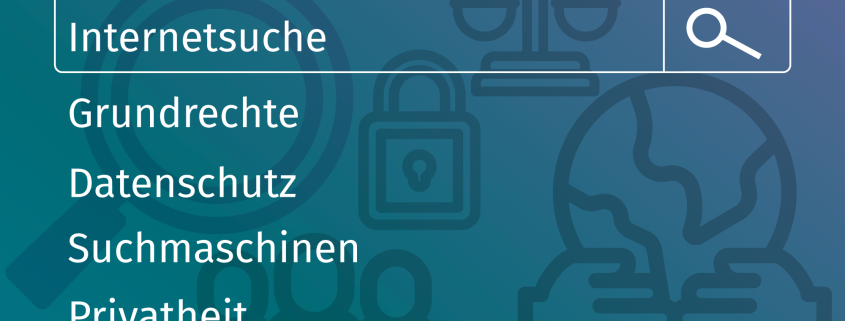New project “Privacy-enhancing digital infrastructures” (PriDI) launches
At the interface between law and business informatics, the PriDI project is researching how an open web index can be designed in conformity with fundamental rights and in such a way that it protects privacy. This includes how values such as privacy and data protection can be anchored in such a web index in the sense of “value-by-design”.
Together with the University of Kassel, one of our consortium partners – namely the Open Search Foundation – has won the PriDI project, funded by the German Federal Ministry of Education and Research.
PriDI (which from German translates to “privacy-enhancing digital infrastructures”) will examine the necessary legal implications for the formation of an open European web index that complies with fundamental rights and protects privacy. The PriDI project team will accompany the OWS.EU-driven development of the European open search infrastructure over a period of 48 months and ensure that values such as privacy and data protection are anchored in the open web index in the sense of “value-by-design”.
Without search engines, navigation in the digital world is almost unthinkable.
The current web search business models are based on the intentional exploitation of user data for personalised advertising in extensive online advertising networks. User data is a huge income stream for online businesses, with personal data being the “digital currency” of the 21st century. But why are there no real alternatives to the search engine models of the big tech giants?
The answer is simple: search engines require a web index – a kind of table of contents of the World Wide Web. Currently, there are only four search index providers worldwide with comprehensive indexes. This is because market entry barriers such as the enormous costs of setting up and operating a web index make it difficult for new search engines to build their own index and assert themselves on the market. In other words, Search engine developers are currently dependent on the proprietary web indexes of the four major platforms, which dictate their access and usage conditions and act as gatekeepers in the search engine market. This makes web search anything but “open,” “privacy-protected,” or “free.”
The OWS.EU open web index, on the other hand, could provide a large number of search engines with a basis for their services. The open web index will also be used by science, research and companies for innovations in the field of artificial intelligence.
Once launched, the open web index will promote diversity and freedom of choice in the area of internet search as well as freedom of information and will be an important step towards digital sovereignty. In addition, opening up the search engine market will strengthen the informational self-determination of citizens.
PriDI will support OWS.EU with pioneering legal design patterns
The PriDI project team will therefore support the development of the open web index with legal and business IT expertise. The aim is to align the resulting search infrastructure with the best possible implementation of fundamental rights and applicable data protection law. With a focus on a particularly privacy-friendly design, the project team will examine legal requirements, translate them into specific catalogues of requirements and have them evaluated by stakeholder groups.
The project website on the Federal Ministry of Education and Research (in German):
https://www.forschung-it-sicherheit-kommunikationssysteme.de/projekte/pridi






